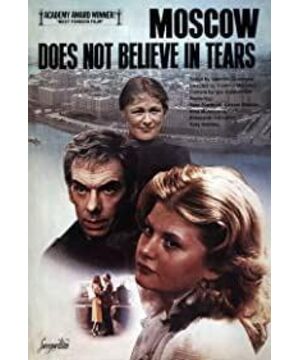For example, the heroines are the kind of matching pattern with contrasting personalities. Among them, the first female Katerina is not only smart and beautiful, but also has a good personality, calm and unconservative, and enthusiastic enough to reason. More importantly, it is also very good and motivated (if you change to a man, you are generally upright, courageous, and have leadership qualities); the female number two must be an open, trendy, and fame-seeking Lyudmila (changed to a man, generally cynical and ambitious) , In order to achieve the goal or even unscrupulous. In the end may be the enemy of the No. 1 Friend); the one with the least drama must be neither smart nor beautiful, and has no higher pursuit of career and life, so he married a husband and a son early ( When you are a man, you are generally shameless in appearance, but simple and kind or honest and dull in heart. Responsible for adjusting and easing the conflict between two friends, but in the end usually become the victim of the intensification of the conflict)...
Of course, the above stereotype may be more of a few years. There are too many types of movies to watch, and subjectively, I have not enough passion for this kind of works that are very mature from performance to story but are too stable. But the more critical issue (at the realist level) is: considering the fact that the Soviet Union announced its disintegration twelve years later, it is hard to think that this film reflects deeply enough that the great change is not far away. Social Reality. Moscow did not believe in tears, because it was not time to cry. Hey-hey.
Please pay attention to the two important omissions in the film in the life of the heroine Katerina. The first time it was to give birth to a daughter out of wedlock. Regarding the protagonist’s difficult situation at the time, the film only used a limited length of late-night crying scene (weeping due to exhaustion caused by taking care of the baby and stepping up review preparations to take the college entrance examination again). As for how their parents or older generations feel after giving birth, how the factory reflects, and whether the female workers’ dormitory allows mothers and babies to share the same room, many audiences, at least many audiences in third world countries, seem to be more acute. The social problems of the people are completely gone! Could it be that the social situation in the Soviet Union at that time (calculated based on time to give birth to a daughter in the early 1960s) does not have the above problem at all? Or does it exist, and it is more serious, but it is restricted by the film censorship system at the time and cannot be expressed? We have no way of knowing.
A silly account has not been clarified yet, and greater omissions followed one after another-from ordinary female workers reviewing before the exam, they were directly promoted to the factory director more than ten years later. Therefore, it seems that the associated social issues that should be paid attention to, such as how the university management department treats students with unmarried mothers? Whether Katerina’s subsequent career development encountered bureaucratic or conservative accusations, etc., were once again omitted. On the contrary, the film highlights the huge difference in personal living conditions between Katerina and the two girlfriends years later. One and the other, "Moscow Doesn't Believe in Tears" has inadvertently turned into an acclaimed theme movie: the party and the state are absolutely fair to all citizens, regardless of your background, as long as you are diligent in learning and working hard and have ideals. If you are self-motivated, you will be successful! Just like our comrade Katerina! (If this meaning really exists, then the Hollywood judges must have not seen it. Otherwise, they will never be able to award the best foreign language film award to a Soviet theme movie. Haha!) Take a
step back, even if this The film director did not want to deeply reflect the social reality at all, but only told the story of how an ordinary Soviet woman continued to improve herself. The existing narrative structure is still questionable. Because we can't see anything that can interpret this theme more fully than the part you omitted.
View more about Moscow Does Not Believe in Tears reviews








